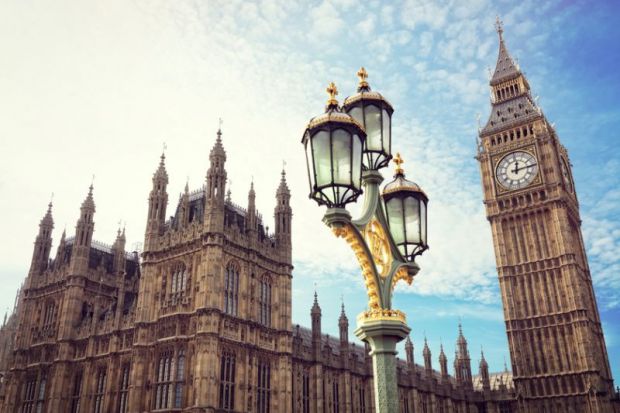Overseas funding of English higher education providers would be monitored by the sector regulator, under an amendment to the campus free speech bill tabled by the education secretary.
Nadhim Zahawi has moved a new clause to the Higher Education (Freedom of Speech) Bill at the report stage in the House of Commons amid pressure from backbenchers to make the sector more transparent.
The amendment states that the Office for Students “must monitor the overseas funding of registered higher education providers and their constituent institutions”. This is so that the regulator can assess the extent to which the funding presents a “risk to freedom of speech within the law and the academic freedom of academic staff”.
Where the OfS has found a higher education provider in breach of its freedom of speech duties, the OfS will consider if overseas funding was relevant to the breach.
The amendment states that the information a higher education provider may be expected to disclose includes “relevant funding from a relevant overseas person, where the funding from that person exceeds the threshold in any period of 12 months specified by the OfS”, as well as any other information the body may “reasonably require”.
Relevant funding includes gifts and donations as well as research grants and commercial partnerships with overseas entities.
Relevant overseas persons include foreign governments, a body that is incorporated or registered in, or has its headquarters in, an overseas country and “politically exposed” individuals.
A separate clause also being moved as an amendment concerns overseas funding for students’ unions, which must also be monitored by the OfS.
Mr Zahawi’s amendments come after Conservative backbencher Jesse Norman tabled his own amendment in January 2022 that would have required universities to disclose any gift, contract or other financial arrangement worth more than £50,000 with any “overseas counterparty” to be included on a public register.
Mr Norman said at the time that the amendment was “designed to improve the governance of institutions, by making it more transparent as to where money from overseas sources has come from”.
The US publishes information on foreign donations and gifts to universities. In the UK, however, disclosure has been left up to individual universities, some of which have gift committees to examine donations, while others leave decisions to senior managers.
Other amendments to the bill being moved by Mr Zahawi would prevent universities from requiring individuals to bear some or all of the cost of their security when using the premises.
Another clause has extended the legislation so that it includes junior and middle common rooms, as found at the universities of Cambridge and Oxford, as well as all students’ unions.
The bill as originally introduced would allow the appointment of a free speech and academic freedom champion to the OfS board and would enable individuals to sue institutions for compensation over breaches of strengthened free speech duties.
The bill made limited progress through Parliament during its last session but has been carried over to the current sitting.
Register to continue
Why register?
- Registration is free and only takes a moment
- Once registered, you can read 3 articles a month
- Sign up for our newsletter
Subscribe
Or subscribe for unlimited access to:
- Unlimited access to news, views, insights & reviews
- Digital editions
- Digital access to THE’s university and college rankings analysis
Already registered or a current subscriber? Login








